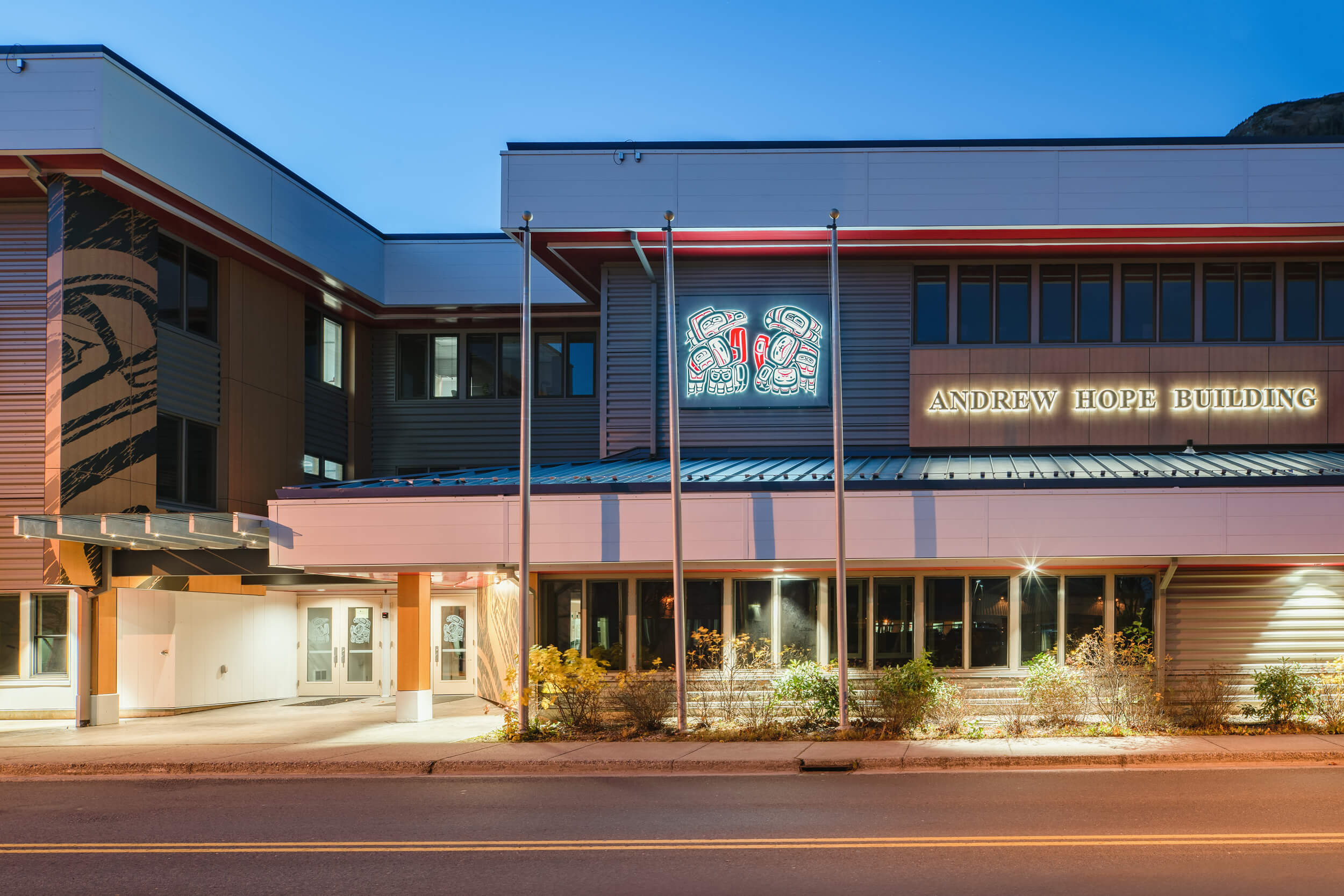
- Details
- By Native News Online Staff
The Department of the Interior’s Bureau of Indian Affairs announced yesterday it has approved the Central Council of the Tlingit & Haida Indian Tribes of Alaska’s application to place a land parcel in Juneau, AK into federal trust status.
The action, announced yesterday, marks just the second fee-to-trust acquisition in Alaska since the passage of the Alaska Native Claims Settlement Act (ANCSA) in 1971, and the first in five years.
Want more Native News? Get the free daily newsletter today.
Fee-to-trust land acquisitions, also called “land-into-trust,” transfer a land title to the federal government to be held in trust for the benefit of an individual or Tribe.
“Today is a historic day for Tlingit & Haida,” President Richard Chalyee Éesh Peterson said in a statement. “Trust lands are a cornerstone of federal Indian policy and are key to federal and private sector funding and investment. The ability for Alaska tribes to petition for trust land acquisitions maximizes tribal government resources, eligibility for federal programs and services, and fosters economic development.”
The acquisition of land for the Tlingit-Haida “aligns with President Biden’s commitment to protecting Tribal sovereignty and revitalizing Tribal communities by restoring Tribal homelands,” Bryan Newland, the Interior’s Assistant Secretary for Indian Affairs, said in a statement.
“It demonstrates this Administration’s respect for unique nation-to-nation relationships, commitment to the country’s treaty and trust responsibilities, and desire to strengthen Tribal sovereignty and advance Tribal self-determination,” Newland said.
Federal policies dating back more than a century have eroded Tribes’ land base across the United States. Placing lands into trust status through the Interior allows Tribes to reacquire lands within or near their reservations, establish a land base for Tribal communities, and clarify jurisdiction over their lands.
“I've been smiling all day today as a result of this,” Barbara Blake (Haida/Tlingit and Ahtna Athabascan), director of AK Native Policy Center with First Alaskans Institute, told Native News Online. “For a long time, we have been attempting to gain many of the same rights that our tribal brothers and sisters have down there in the lower 48. We're just starting to see this come to fruition after so many years of really working hard to ensure that the federal government is holding their responsibility to our tribes here.”
The decision by the BIA is a sign of “great progress” that all Alaska tribes should celebrate, Tlingit-Haida’s Peterson said. “This is what advancing tribal sovereignty and self-determination looks like so that we can address public safety and child welfare issues, protect historic homelands and cultural sites, and expand funding for services, education, and housing.”
Senior reporter Jenna Kunze added reporting to this story.
More Stories Like This
50 Years of Self-Determination: How a Landmark Act Empowered Tribal Sovereignty and Transformed Federal-Tribal RelationsTunica-Biloxi Chairman Pierite Elected President as Tribal Nations Unite Behind New Economic Alliance
NCAI, NARF Host Session on Proposed Limits to Federal Water Protections
“Our Sovereignty Is Not Optional”: Tulalip Responds to ICE Actions
Denied Trip to Alcatraz, Leonard Peltier Tells Sunrise Gathering: “My Heart Is Full”
Help us defend tribal sovereignty.
At Native News Online, our mission is rooted in telling the stories that strengthen sovereignty and uplift Indigenous voices — not just at year’s end, but every single day.
Because of your generosity last year, we were able to keep our reporters on the ground in tribal communities, at national gatherings and in the halls of Congress — covering the issues that matter most to Indian Country: sovereignty, culture, education, health and economic opportunity.
That support sustained us through a tough year in 2025. Now, as we look to the year ahead, we need your help right now to ensure warrior journalism remains strong — reporting that defends tribal sovereignty, amplifies Native truth, and holds power accountable.
 The stakes couldn't be higher. Your support keeps Native voices heard, Native stories told and Native sovereignty defended.
The stakes couldn't be higher. Your support keeps Native voices heard, Native stories told and Native sovereignty defended.
Stand with Warrior Journalism today.
Levi Rickert (Potawatomi), Editor & Publisher


